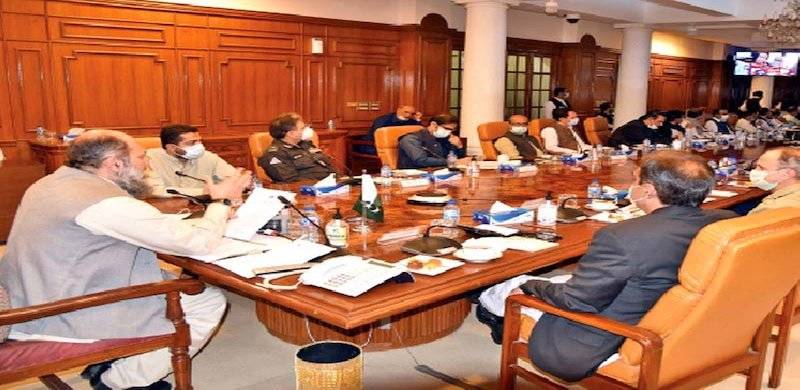
In Balochistan, the internal geographical hurdles of the scattered and thin population is the sky-high issue for accurate and speedy disposal of public affairs.
The efficiency and effectiveness of the state machinery are always under the darkening sky in the province. The growing grievances of the provincial bureaucracy along attached departments are a serious dilemma for the government. Public administration in the province is under the siege of policymakers with little expertise and knowledge, who mostly appeal to the financial aspects of government affairs. The provincial PSDP is a serious issue that needs to be addressed in Balochistan.
Further, the inclusion and exclusion of unnecessary projects are the bedrock of administrative crises in the province. Financial corruption is a core issue. Political affiliation and tribalism are also handing in the said concerns.
The local and national-oriented political leaders of Balochistan are less sensed by the knowledge of the genuine policy formulation process.
That is not all -- the executive branch of the province is struggling with multidimensional issues and problems. Fair public dealing is very slow due to massive reliance on official formalism instead of the modern E-governance system. However, the interface of political and non-political forces never allowed the provincial bureaucracy to act accordingly. There is a huge difference in the service structure of parent and attached departments. For instance, the local law enforcement agencies are facing shortcomings in allocating budget properly. The lack of founding elements of human resource, up to date equipment, and other roaming requirements. By the existence of such genuine drawbacks, it always curtails the administrative efficiency of the department.
The other justified grievance of the people of the province is access to justice. Before the contemporary judiciary system, the actual justice system inside Balochistan has solely relied on jirgas (village councils). These jirgas included local tribal heads, whose key responsibility was to ensure and provide justice when complaints were brought to their attention. Later on, this system was modified and upgraded by the executive magistracy. It had evolved the government organs, with the collaboration of administrative departments for delivering justice without delay. It was skilful at handling the grievances of the people and managed to quickly dispose of the public matters.
However, after repealing the Act of Magistracy, the ratio of resolved cases decreased. Balochistan High Court is said to have 4,822 cases pending before it. In addition, more than 12000 cases are also pending in lower courts of the province. The high ratio of poverty is the distinguished hurdler to access justice. But above all, the current justice system is based on technical pomp and show and possessing a financial parameter in its dealing. Therefore, it is apparently not possible by the large segment of the society to arrange all needs justly.
In a nutshell, every government and subsequent administration in Balochistan is proved as the blind hand of fortune. The need of the hour is to reconsider the present priorities and readdress the genuine needs of the most undeveloped part of the country.
The efficiency and effectiveness of the state machinery are always under the darkening sky in the province. The growing grievances of the provincial bureaucracy along attached departments are a serious dilemma for the government. Public administration in the province is under the siege of policymakers with little expertise and knowledge, who mostly appeal to the financial aspects of government affairs. The provincial PSDP is a serious issue that needs to be addressed in Balochistan.
Further, the inclusion and exclusion of unnecessary projects are the bedrock of administrative crises in the province. Financial corruption is a core issue. Political affiliation and tribalism are also handing in the said concerns.
The local and national-oriented political leaders of Balochistan are less sensed by the knowledge of the genuine policy formulation process.
That is not all -- the executive branch of the province is struggling with multidimensional issues and problems. Fair public dealing is very slow due to massive reliance on official formalism instead of the modern E-governance system. However, the interface of political and non-political forces never allowed the provincial bureaucracy to act accordingly. There is a huge difference in the service structure of parent and attached departments. For instance, the local law enforcement agencies are facing shortcomings in allocating budget properly. The lack of founding elements of human resource, up to date equipment, and other roaming requirements. By the existence of such genuine drawbacks, it always curtails the administrative efficiency of the department.
The other justified grievance of the people of the province is access to justice. Before the contemporary judiciary system, the actual justice system inside Balochistan has solely relied on jirgas (village councils). These jirgas included local tribal heads, whose key responsibility was to ensure and provide justice when complaints were brought to their attention. Later on, this system was modified and upgraded by the executive magistracy. It had evolved the government organs, with the collaboration of administrative departments for delivering justice without delay. It was skilful at handling the grievances of the people and managed to quickly dispose of the public matters.
However, after repealing the Act of Magistracy, the ratio of resolved cases decreased. Balochistan High Court is said to have 4,822 cases pending before it. In addition, more than 12000 cases are also pending in lower courts of the province. The high ratio of poverty is the distinguished hurdler to access justice. But above all, the current justice system is based on technical pomp and show and possessing a financial parameter in its dealing. Therefore, it is apparently not possible by the large segment of the society to arrange all needs justly.
In a nutshell, every government and subsequent administration in Balochistan is proved as the blind hand of fortune. The need of the hour is to reconsider the present priorities and readdress the genuine needs of the most undeveloped part of the country.
